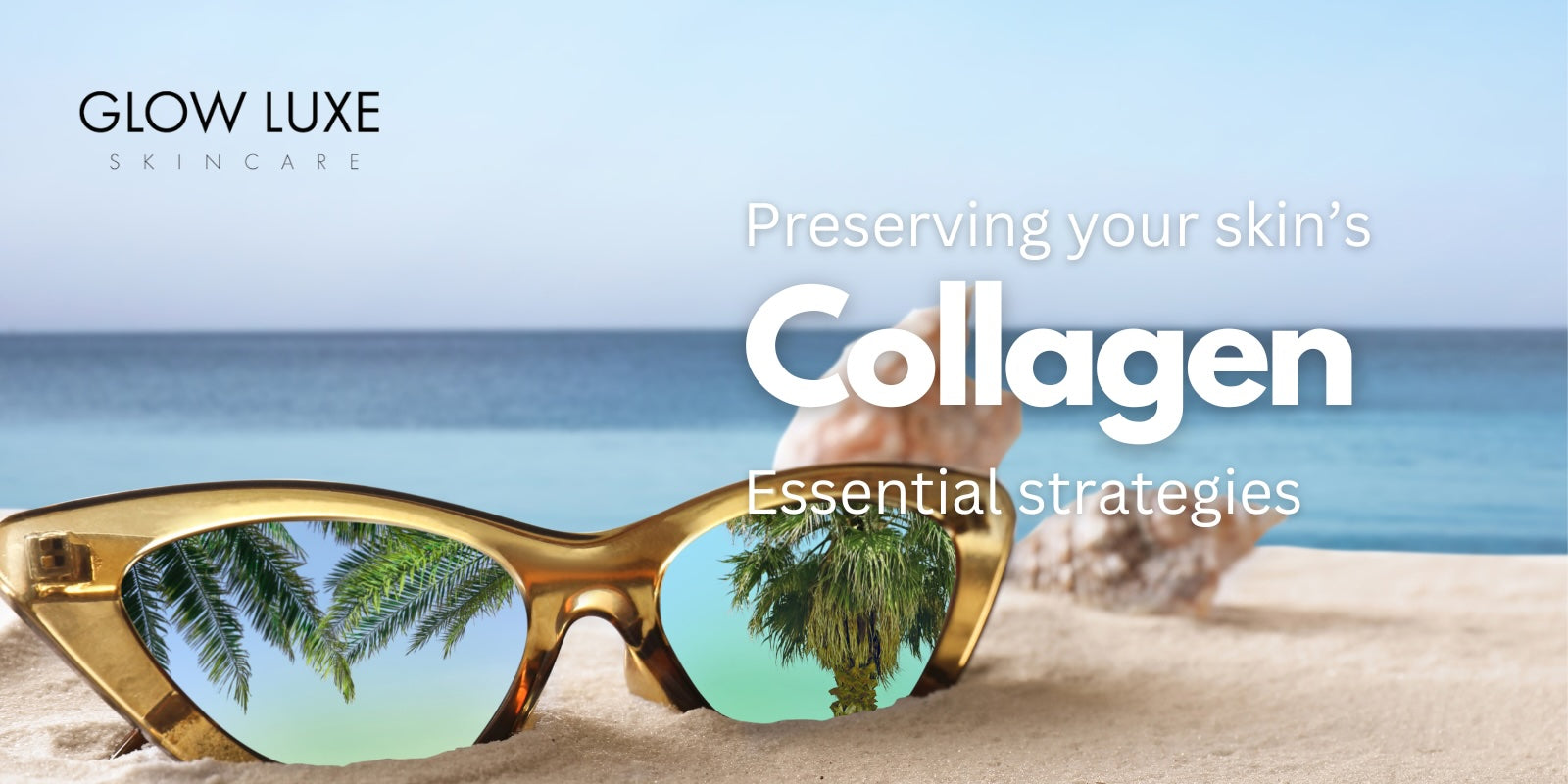
We often write about Collagen, because the most abundant protein in our bodies, plays a crucial role in maintaining the strength, elasticity, and youthful appearance of our skin.
As we age, however, our natural collagen production declines, leading to sagging, wrinkles, and other signs of aging. While this decline is inevitable, let's take a look at 4 external factors that can accelerate it, causing premature aging and diminishing the health of our skin. In this comprehensive guide, we'll explore the impact of smoking, UV light exposure, sugar and refined carbohydrates, and alcohol consumption on collagen, and most importantly, we'll provide actionable tips on how to preserve and protect this vital protein for vibrant, healthy skin.
The Collagen Dilemma
Understanding Collagen and Its Importance: Collagen is the structural foundation of our skin, providing firmness, elasticity, and hydration. Its abundance ensures smooth, youthful-looking skin, while its decline leads to wrinkles, sagging, and a loss of vitality.
Smoking: The Collagen Killer
The Effects of Smoking on Collagen: Smoking is a major culprit in collagen degradation, causing oxidative stress, inflammation, and impaired collagen synthesis. The toxins in cigarette smoke directly damage collagen fibers, leading to premature aging and a dull complexion.
Protecting Your Collagen from Smoking: Quitting smoking is the most effective way to preserve collagen and improve overall skin health. Additionally, incorporating antioxidants into your skincare routine can help combat the oxidative damage caused by smoking.
UV Light: Sun's Harmful Rays
How UV Light Impacts Collagen: While a little sun exposure definitely has its benefits, excessive UV exposure is one of the primary causes of collagen breakdown. UV rays penetrate the skin, triggering the production of harmful free radicals that degrade collagen fibers and impair their ability to regenerate.
Shielding Your Collagen from UV Damage: Wearing broad-spectrum sunscreen with SPF 30 or higher daily is essential to protect collagen from UV-induced damage. Seeking shade, avoiding tanning beds, wearing protective clothing, and avoiding peak sun hours can further minimize collagen degradation and reduce the risk of skin cancer.
Sugar and Refined Carbohydrates: Sweet Saboteurs
The Role of Sugar in Collagen Degradation: High sugar and refined carbohydrate consumption contribute to a process known as glycation, where sugar molecules bind to collagen fibers, rendering them stiff and prone to breakage. This process accelerates skin aging and diminishes collagen's structural integrity.
Preserving Collagen by Reducing Sugar Intake: Adopting a low-glycemic diet rich in fruits, vegetables, lean proteins, and whole grains can help mitigate the effects of glycation on collagen. Additionally, skincare products containing ingredients like niacinamide and alpha hydroxy acids can combat glycation and support collagen synthesis.
Alcohol: Collagen's Foe
How Alcohol Impairs Collagen Production: Excessive alcohol consumption disrupts collagen synthesis and promotes inflammation, leading to a loss of skin firmness and elasticity. Alcohol also dehydrates the skin, exacerbating the appearance of fine lines and wrinkles.
Safeguarding Collagen with Moderation: Limiting alcohol intake and staying hydrated are key strategies for preserving collagen and maintaining skin health. Alternating alcoholic beverages with water, incorporating hydrating skincare products, and prioritizing adequate sleep can further offset alcohol's detrimental effects on collagen.
Conclusion: Preserving collagen is essential for maintaining youthful, radiant skin throughout the years. By understanding the impact of smoking, UV light exposure, sugar and refined carbohydrates, and alcohol consumption on collagen, we can take proactive steps to protect this vital protein and prolong skin health.
